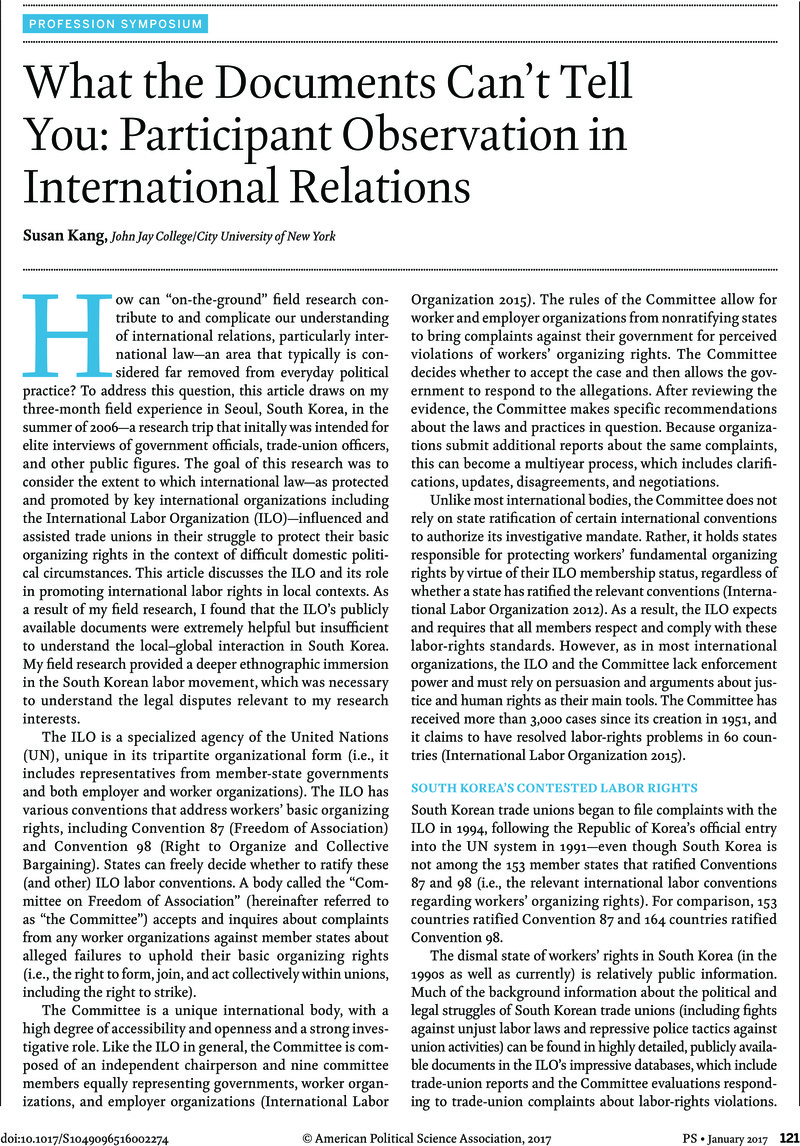International Labor Organization.
2012. “Special Procedures for the Examination in the International Labour Organization of Complaints Alleging Violations of Freedom of Association–Annex 1.” Normlex: Information System on International Labour Standards. Available at
www.ilo.org/dyn/normlex/en/f?p=normlexpub:62:1103908110241279:no:62:p62_list_entrie_id:2565060:no. Accessed February 1, 2016.
Google Scholar 